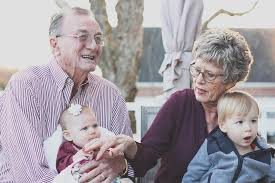
18. The Future of Aging
Julie Miller is a Research Associate at the MITAgeLab and a Lecturer at Northeastern University. She is a gerontologicalsocial worker by training and studied at The University of California,
Berkeley, and at Northeastern University in Boston. Julie¹s research contributes to forecasting the impact of demographic change in homes,workplaces, educational settings, and community spaces. She has worked at
the MIT AgeLab since 2012 and leads the Lifestyle Leaders group, a panelof adults ages 85 and older who represent "the leading edge" of aging inthe U.S.
Questions/Discussion
What is the MIT Age Lab? Describe history, purpose, organization….
What contributions has the lab made to improving the lives of older people?
One of the tabs on the Lab website is “disruptive demographics.” How are aging trends disrupting societies?
Is the growth of elderly population happening world-wide? Are some countries more impacted than the US?
Is this generation of older people any different from older generations in the past? What if anything is new about the current situation?
Do you see any issues of conflict between the elderly and younger generations---is there a greater conflict in cities like Portland (and Boston) that put a high premium on technology and youth-related culture?
You are the lead for the 85+lifestyle Leaders Panel? Is that correct?
What is the panel doing?
Want results are you hoping for?
I am sure you would not like to talk about the book promoted on the website, The Longevity Economy: Unlocking the World’s Fastest-Growing, Most Misunderstood Market, since you are not the author, but perhaps you could mention the book and address the concept of the missed market opportunity in this demographic…
What is it?
How is it a business opportunity?
Why are women so important in it?
How do you at the Lab define “oldness?” (I see this definition at one of the tabs---Oldness:a social construct at odds with reality that constrains how we live after middle age—and stifles business thinking on how to best serve a group of consumers, workers, and innovators that is growing larger and wealthier with every passing day.)
Do you have any advice/suggestions for us here in Portland, trying to put this demographic change in the best possible framework, making it work for the whole community?
- KBOO


